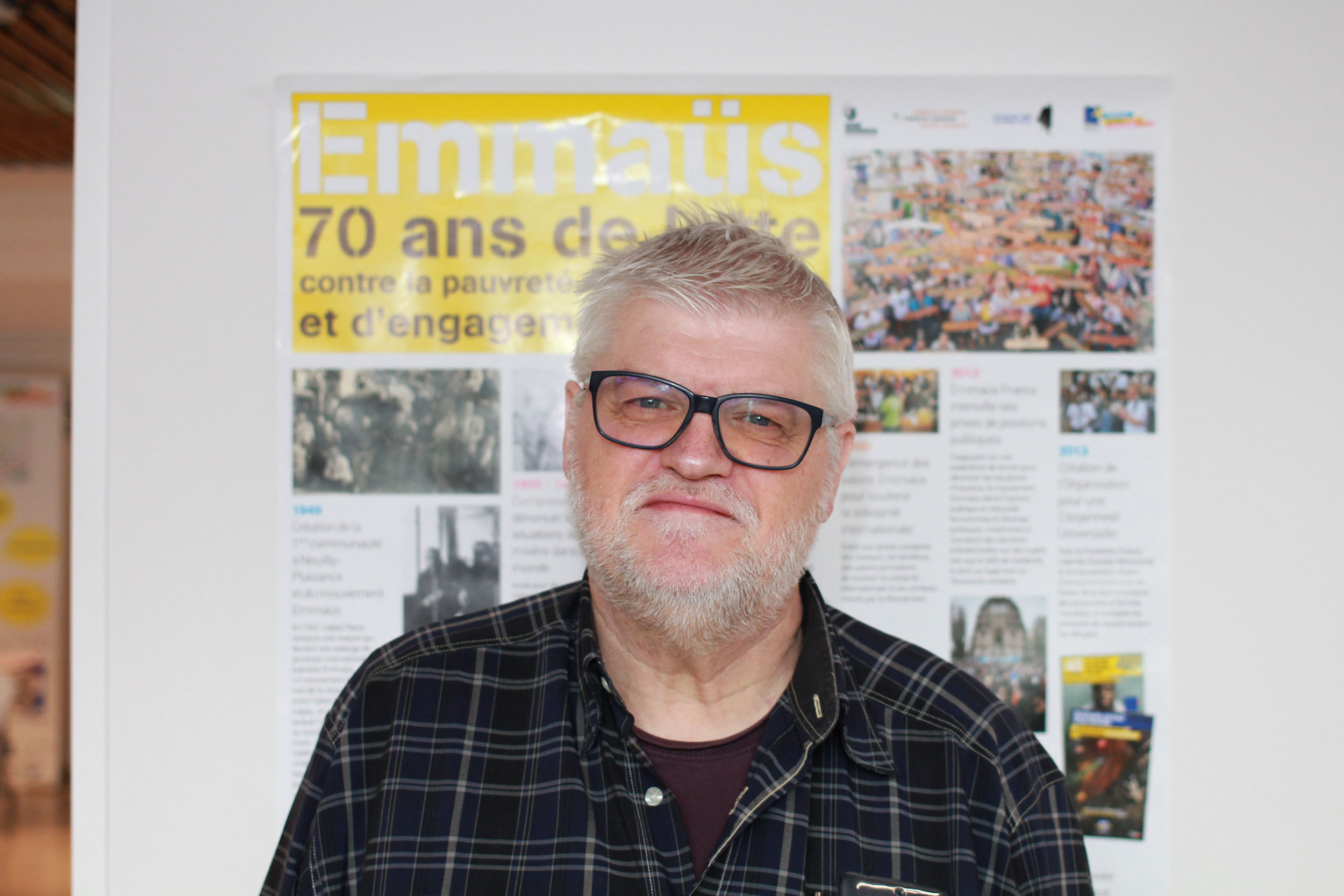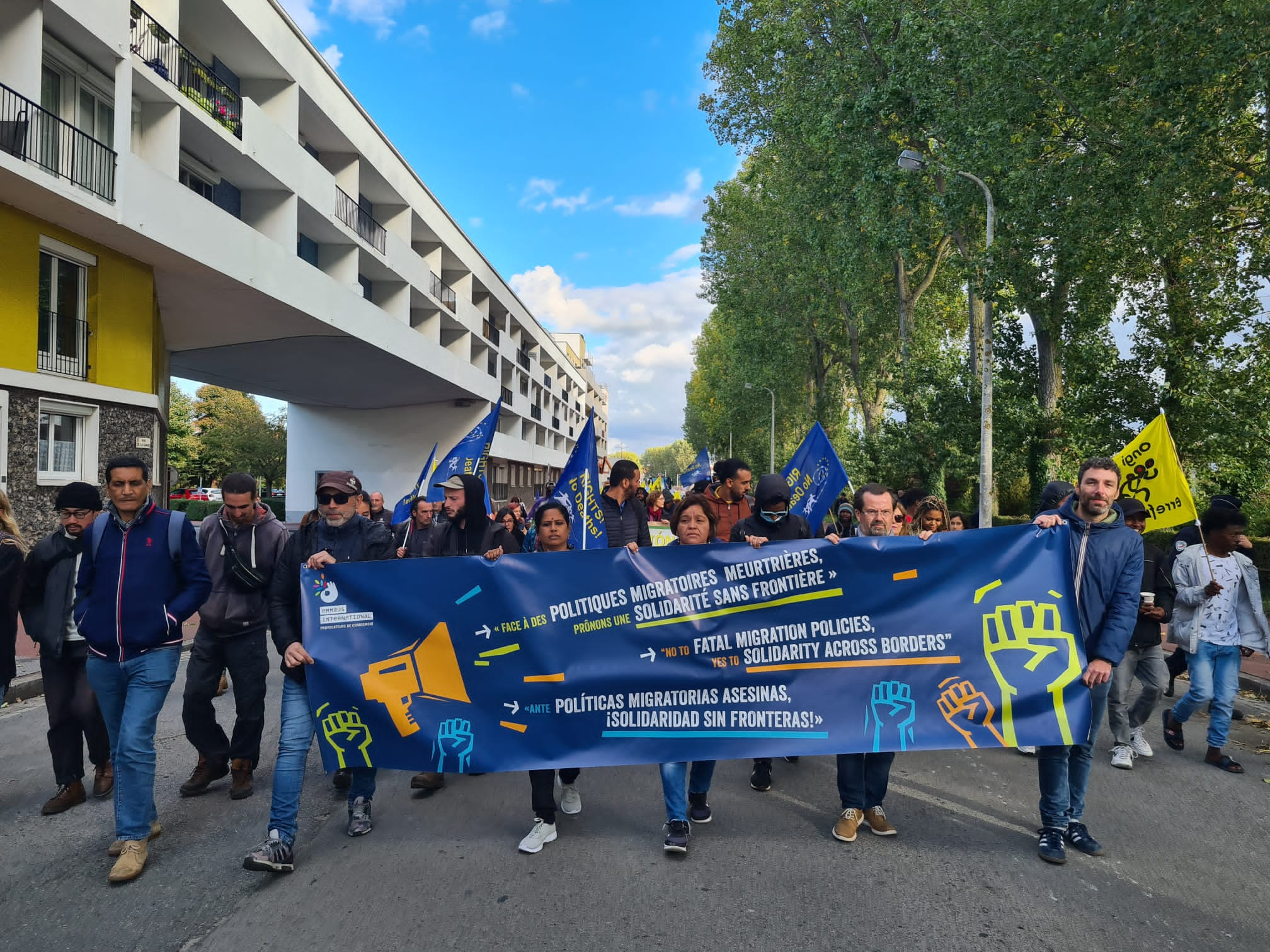Situation in Emmaus communities in the North of France: Question time with Antoine Sueur, Chair of Emmaus France

In recent months, articles have appeared in the press about groups in France. The articles mention the conditions for taking in companions, the right to stay, the exploitation of people, among other issues.
In the past, the movement has had to deal with similar situations, when poverty is rising, and groups are increasingly under pressure. Groups face an increase in the precariousness of the people they assist on the one hand, and on the other, public opinion, which is becoming increasingly tense regarding social issues.
Fortunately, these cases are isolated, yet they undermine all the work carried out by other Emmaus groups in France. They also have an impact on groups in other countries as this information is shared widely on social media.
Emmaus International: What can you tell us about these situations today?
Antoine Sueur : There are two situations that have been a cause for concern to the Emmaus movement in France for several weeks. Although two communities from the same region are involved, the situations in these communities are quite different.
Following the publication of an investigation by journalists at the end of June 2023, we learned that the Halte Saint-Jean community was the subject of a preliminary investigation for “trafficking in human beings and illegal labour”. We were unaware of the facts mentioned, but they are extremely serious and shocking, if they are verified. Currently, a significant number of companions are continuing the strike action they began at the beginning of July.
In Dunkirk, half of the companions went on strike in August. In this community, the conflict is the result of tensions that had been brewing for several months, and which we had already alerted the community governing bodies to on several occasions. Emmaus France had received anonymous reports from companions complaining about the standard of care and support they received. The strike was triggered by a change in the way the community allowance was paid, and the demands soon extended to working conditions and issues related to obtaining legal status.
How is Emmaus France tackling these tricky situations?
As it is our duty to offer a dignified welcome to all, and because we cannot remain indifferent to reports of suffering, we strongly condemn any established shortcomings relating to conditions for companions within the movement’s groups. Emmaus France is therefore closely monitoring the situation of the communities in the north. Some requests have been made, measures have been taken, and more will follow.
Our aim is to ensure that practices and conditions offered to companions comply with the values and high standards of our movement, while taking into account legal procedures and the presumption of innocence, as well as the statutory provisions governing the way our movement operates.
Emmaus France’s Board met on 6th and 7th July and made a number of decisions concerning the Halte Saint-Jean community. The Halte Saint-Jean board was asked to immediately remove the manager in order to ensure the protection of both the companions and the manager herself, who was at the centre of mounting tensions. After checking that it was compatible with the preliminary investigation, we informed the community of the need to carry out an audit as soon as possible in order to evaluate how it works, with a particular focus on listening to the people it takes in. The Halte Saint-Jean community has until the end of September to take the necessary steps to implement these requests. After this deadline, and if no further action is taken by the Halte Saint-Jean community, we will have to adopt new measures.
In Dunkirk, Emmaus France quickly took action to try to find a solution to the extremely tense relations between the two parties, but the community’s governing bodies were unwilling to cooperate.
Both at Halte Saint-Jean and Dunkirk, the community leaders decided to no longer support companions by stopping their community allowance and, in the case of Halte Saint-Jean, even denying them access to food.
In Dunkirk, the community’s management decided to initiate legal proceedings against companions who are on strike by providing a list of their names. This decision puts companions at risk in terms of their legal status.
We strongly condemn these decisions, which run counter to the values of our movement. In both cases, a line has clearly been crossed. New measures will be taken very shortly.
What are the main misconceptions being spread about the rules that apply to Emmaus groups in France?
There is a misunderstanding about the status of companions and the role of communities. Companions are not employees, and communities have never been thought of as businesses. Since they were founded by Abbé Pierre in 1949, Emmaus communities have been places where people are welcomed, where they can live and work, and get involved in activities and solidarity projects. Almost all communities depend on the recycling and sale of second-hand items. They welcome over 7,000 companions per year, who are fed, housed and receive a community-member allowance. This unique solidarity model is legally governed by Article L265-1 of the French Social Action and Family Code (Code de l’action sociale et des familles), which establishes the framework for OACAS status (Organismes d’accueil communautaire et d’activités solidaires). This means that companions are not employees or paid workers but have the status of solidarity workers.
As such, all companions contribute to a solidarity-based and environmental project and benefit from personalised support to help them rebuild their lives and find their place in society, both within and outside of the community. Emmaus communities give objects a second life and, more importantly, they offer a second chance to men and women in difficulty.


